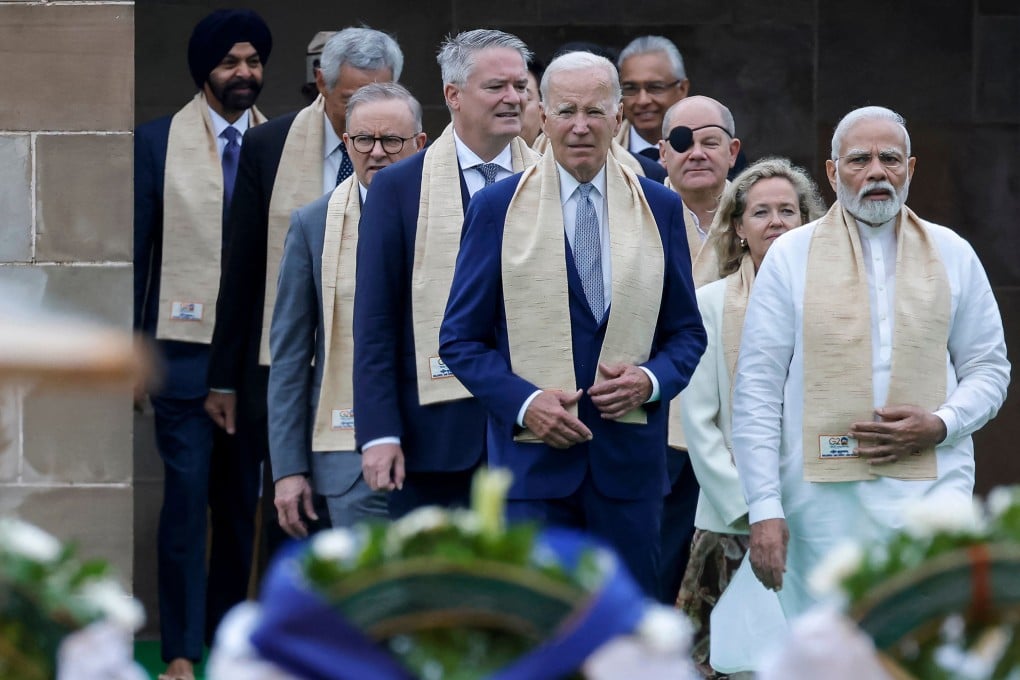Advertisement
Opinion | Amid US-China rivalry, rest of the world will simply try to maximise their gain
- While the Chinese leader skipped the summit in New Delhi, emerging actors did business with Western partners and India raised its profile
- If Xi will engage only with groups in which China has the upper hand, he will realise that geopolitical voids are always filled up by competitors
Reading Time:3 minutes
Why you can trust SCMP
2

The G20 leaders’ failure to condemn Russia’s war against Ukraine could have given Chinese President Xi Jinping, who did not attend the summit meeting, the sense of a good result: the sense that the Sino-Russian “no-limits friendship”, supported by friends from the Global South, dealt a blow to the United States and its allies.
Advertisement
It didn’t. Although the G20 meeting in India might well have signalled a significant shift of geopolitical power away from advanced economies to developing countries, it was not the dawn of a new world order dominated by the relationship between China and non-Western aligned nations, of which the recent expansion of the Brics bloc would be the embryonic embodiment.
Instead, in a game of balancing and counterbalancing, emerging actors proved ready to do business with G20 partners from the West, regardless of whether this would go down well in Beijing (let alone in Moscow).
On the margins of the summit, India and Saudi Arabia agreed with the US and the European Union on the development of an economic corridor connecting Indian territory with the Middle East (including the United Arab Emirates, Jordan and Israel) and Europe via railways, shipping ports, a new undersea cable and energy infrastructure for the production and transport of green hydrogen.
The project is the most ambitious yet undertaken by the Partnership for Global Infrastructure and Investment, the Group of 7 countries’ response to China’s Belt and Road Initiative, and its EU-led twin, the Global Gateway strategy.
Advertisement
The EU-US global infrastructure alliance is challenging China in its “backyard” in Africa too. At the G20 summit in India, Washington and Brussels held talks to accelerate the construction of the Trans-African Corridor that will link the mining region of Katanga in the Democratic Republic of Congo, and the “Copper Belt” in Zambia to Lobito port in Angola. It is worth remembering that Western economies are keen to diversify supply chains for critical minerals and reduce their dependence on China.

Advertisement
